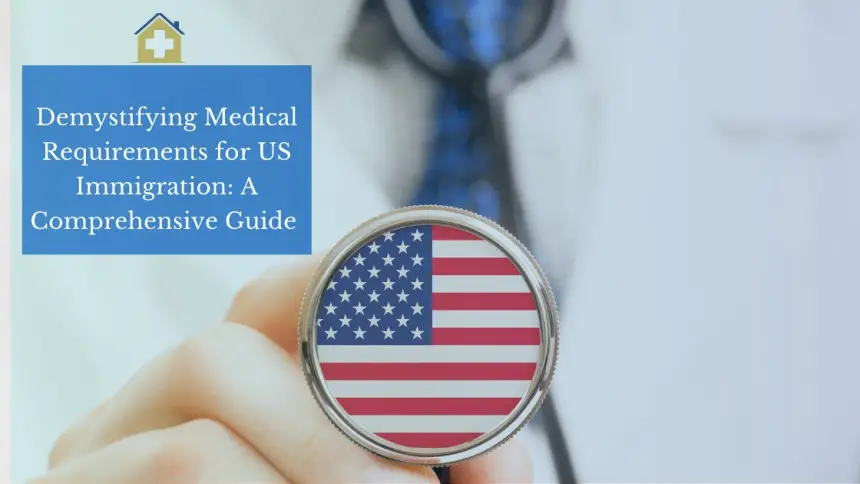
Health Insurance: A Comprehensive Guide to Securing Your Well-being
In this all-encompassing guide, you'll learn all you need to know about health insurance. Gain an understanding of its significance, the several types it can take, the benefits it can provide, and how it can help protect your health. Find the answers to frequently asked issues and obtain new perspectives from reputable sources.
Introduction
When it comes to protecting your health, having health insurance is one of the few things that is as important as it is necessary. You can protect yourself financially against unforeseen medical costs with health insurance, and it also ensures that you will have access to high-quality medical treatment when you are in the greatest need of it. In this all-encompassing book, we will delve into the realm of health insurance and cover a variety of elements that will assist you in making educated decisions regarding your healthcare coverage.
Health Insurance: Understanding the Basics
Let's get the basics out of the way first before we go into the specifics of health insurance. What exactly does the term "health insurance" refer to?
An individual and an insurance provider enter into a legally binding agreement called health insurance. This agreement provides the individual with financial protection against the costs of medical care. It functions as a safety net, safeguarding you from the weight of expensive medical expenditures that can occur as a result of diseases, injuries, or preventative treatment. These bills can be incurred as a result of preventive care.
The Importance of Health Insurance

The decision to purchase health insurance represents an investment in more than just your finances; it also represents an investment in your physical and mental well-being. One can gain a better understanding of the significance of health insurance by considering the following points:
- Financial Security for Medical Emergencies: Unpredictable medical crises can occur at any time, leaving you with significant costs associated with treatment. Having health insurance gives you the peace of mind that comes with knowing that you are financially ready to face such situations without sacrificing the quality of care that you receive.
- Access to Quality Healthcare: If you have health insurance, you will have access to a vast network of medical professionals and facilities that provide healthcare. This guarantees that you will have access to the most advanced medical care available without any wait.
- Preventive Care and Wellness: It is common for health insurance to include coverage for preventative services such as immunizations, screenings, and regular checkups. This encourages you to take an active role in managing your health.
- Protection Against Rising Healthcare Costs: The cost of medical treatment is constantly going up, but having health insurance will protect you from having to bear the weight of these ever-increasing prices, which will ultimately make receiving medical care more reasonable.
You may also like: "Life Insurance: Protecting Your Future and Loved Ones"
Types of Health Insurance Plans
There are many different kinds of health insurance, each one tailored to a certain set of requirements and interests. The following are some examples of prevalent forms of health insurance:
- Individual Health Insurance:This category of insurance policy is created specifically for individuals and offers protection against the financial burden of medical bills resulting from accidents and diseases.
- Family Health Insurance:Family health insurance is an option that is more financially advantageous for families since it provides coverage for numerous members of the family under the umbrella of a single plan.
- Group Health Insurance:Group health insurance, often known as employer-sponsored health insurance or EHI, is typically offered by businesses to their staff members as a means of providing coverage for the whole workforce under a single plan.
- Medicare and Medicaid:Medicaid provides health coverage to low-income individuals and families, while Medicare provides health insurance to those who are 65 or older and have a qualifying disability.
- Short-term Health Insurance:People who are between jobs or who otherwise face brief coverage gaps may benefit from purchasing short-term health insurance.
- Catastrophic Health Insurance:Individuals under the age of 30 or in financial need may benefit from this plan's coverage of catastrophic medical costs.
Understanding Health Insurance Coverage
Health insurance coverage can be intricate, with various terms and conditions. To make the most of your insurance, it's essential to understand the components of your coverage:
- Premiums: The premium is the regular payment you make to the insurance company to keep your policy in force. Monthly, quarterly, or yearly installments are all acceptable.
- Deductibles: The deductible is the out-of-pocket expense you'll have to make before your insurance kicks in. When the deductible is higher, the premium is usually lower.
- Copayments (Co-pays) and Coinsurance: A copayment is a predetermined sum you must pay for medical care or medication. Coinsurance, on the other hand, is the portion of the bill that you and your insurer each pay together.
- Out-of-Pocket Maximum: You will never have to pay more than your policy's out-of-pocket maximum. When this threshold is met, the insurance company pays for all additional costs.
- Network Coverage: Medical insurance companies frequently work with a pre-established group of doctors' offices and hospitals. Generally speaking, staying within the network will save you money, but venturing outside of it could end up costing you more.
How Health Insurance Works
If you have health insurance, it is in your best interest to understand how it operates so that you can make the most of your coverage. Let's take a look at the procedure:
- Enroll in a Health Insurance Plan: You need to enroll in a plan that is tailored to your requirements in order to obtain health insurance. To accomplish this, it is necessary to select the appropriate sort of plan and become familiar with its terminology.
- Paying Premiums: After you have signed up, you will be required to make regular payments to maintain the validity of your policy and ensure that you are always covered.
- Seek Medical Services: When you have a need for medical services, you can keep the expenses of those services under control by seeing a healthcare provider who is part of your insurance network.
- Paying Deductibles and Copayments: When you obtain medical services, you may be required to pay additional fees, such as deductibles and copayments, depending on the coverage provided by your plan.
- Insurance Covers Remaining Expenses: After you have satisfied the requirements for your deductible and any required copayments, your insurance provider will cover any remaining eligible charges, subject to the conditions of the policy.
You may also like: "Car Insurance: Protecting Your Ride and Your Peace of Mind"
How Health Insurance Works
If you have health insurance, it is in your best interest to understand how it operates so that you can make the most of your coverage. Let's take a look at the procedure:
- Enroll in a Health Insurance Plan: You need to enroll in a plan that is tailored to your requirements in order to obtain health insurance. To accomplish this, it is necessary to select the appropriate sort of plan and become familiar with its terminology.
- Paying Premiums: After you have signed up, you will be required to make regular payments to maintain the validity of your policy and ensure that you are always covered.
- Seek Medical Services: When you have a need for medical services, you can keep the expenses of those services under control by seeing a healthcare provider who is part of your insurance network.
- Paying Deductibles and Copayments: When you obtain medical services, you may be required to pay additional fees, such as deductibles and copayments, depending on the coverage provided by your plan.
- Insurance Covers Remaining Expenses: After you have satisfied the requirements for your deductible and any required copayments, your insurance provider will cover any remaining eligible charges, subject to the conditions of the policy.
Tips for Choosing the Right Health Insurance Plan
Choosing the appropriate health insurance plan can feel like an insurmountable task. Take into account the following suggestions in order to make an educated choice:
- Assess Your Healthcare Needs: Determine the level of coverage you need by looking at your past medical records and making projections about your future requirements.
- Compare Plans: Compare the various options for health insurance, paying attention to the premiums, deductibles, levels of coverage, and networks of providers each one offers.
- Consider Additional Benefits: Additional benefits, such as wellness programs, telemedicine services, and coverage for maternity care, may be included in certain types of health insurance policies.
- Check for In-Network Providers: Make sure that the plan you pick offers access to a network of medical professionals and facilities that are located in areas that are convenient for you.
- Read Reviews and Ratings: Do some research on the insurance provider's track record by reading reviews written by customers and looking at their ratings.
- Seek Expert Advice: If you discover that navigating the available options is difficult for you, you may want to explore seeking individualized help from an insurance agent or broker.
Conclusion
When you really need it, health insurance is not only a financial safety net; it is also an essential instrument that guarantees you will have access to high-quality medical care. If you are well-informed about the various options available for medical care, as well as the steps involved in signing up for coverage, you will be able to make decisions that will best protect your health. When searching for the best health insurance plan for you and your family, it is important to remember to evaluate your requirements for medical treatment, examine the available plans, and consult with qualified professionals.
You may also like: "The Essential Guide to Travel Insurance: Protecting Your Adventures Around the Globe"
FAQs about Health Insurance
What is the Affordable Care Act (ACA), and how does it impact health insurance?
- The Affordable Care Act, also known as Obamacare, is a federal law aimed at improving access to healthcare and reducing costs. It has provisions such as the expansion of Medicaid, creation of health insurance marketplaces, and prohibiting insurance companies from denying coverage based on pre-existing conditions.
Can I purchase health insurance outside the open enrollment period?
- In most cases, you can only purchase health insurance during the open enrollment period. However, certain life events, such as marriage, having a baby, or losing other health coverage, may qualify you for a special enrollment period.
Is it possible to have multiple health insurance plans?
- Yes, in some cases, you can have more than one health insurance plan. This is known as "dual coverage." However, it's essential to coordinate benefits to avoid over-insurance and ensure compliance with policy terms.
Does health insurance cover pre-existing conditions?
- With the implementation of the Affordable Care Act, health insurance plans are required to cover pre-existing conditions, ensuring that individuals with prior health issues can access coverage without discrimination.
Can I keep my health insurance if I change jobs?
- In most cases, changing jobs will require you to enroll in a new health insurance plan offered by your new employer. However, you may have the option to continue your previous coverage through COBRA for a limited time.
Can I get health insurance if I'm self-employed?
- Yes, if you're self-employed, you can explore individual health insurance plans or join professional associations or organizations that offer group health insurance options.
Tags
#healthinsurance, #medicalcoverage, #financialprotection, #qualityhealthcare, #preventivemedicine, #healthinsuranceplans, #individualhealth, #familycoverage, #groupinsurance, #Medicare, #Medicaid, #shorttermplans, #catastrophiccoverage, #premiumcosts, #deductibleexplanation, #copayments, #coinsurance, #outofpocketmaximum, #networkproviders, #choosingthebestplan, #ACAimpact, #openenrollmentperiod, #preexistingconditions, #changingjobsandinsurance, #selfemployedhealthinsurance





